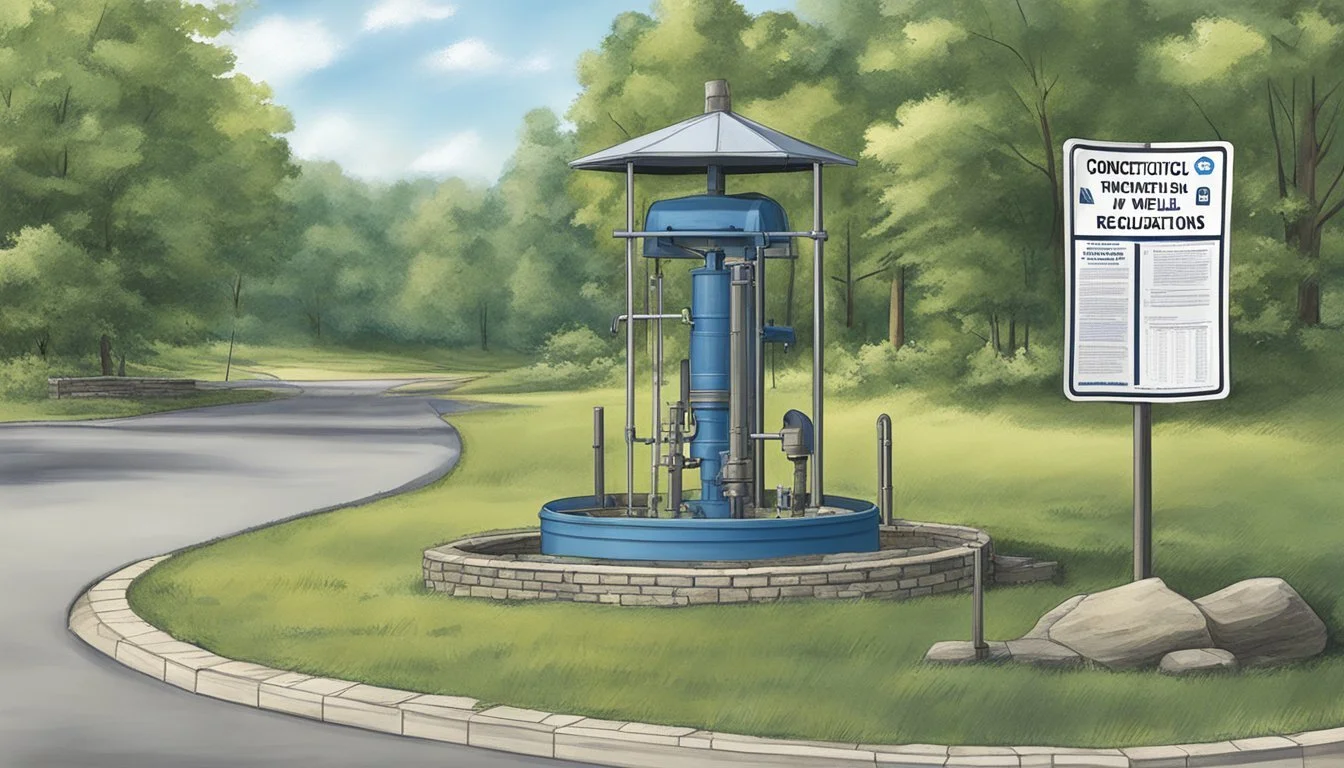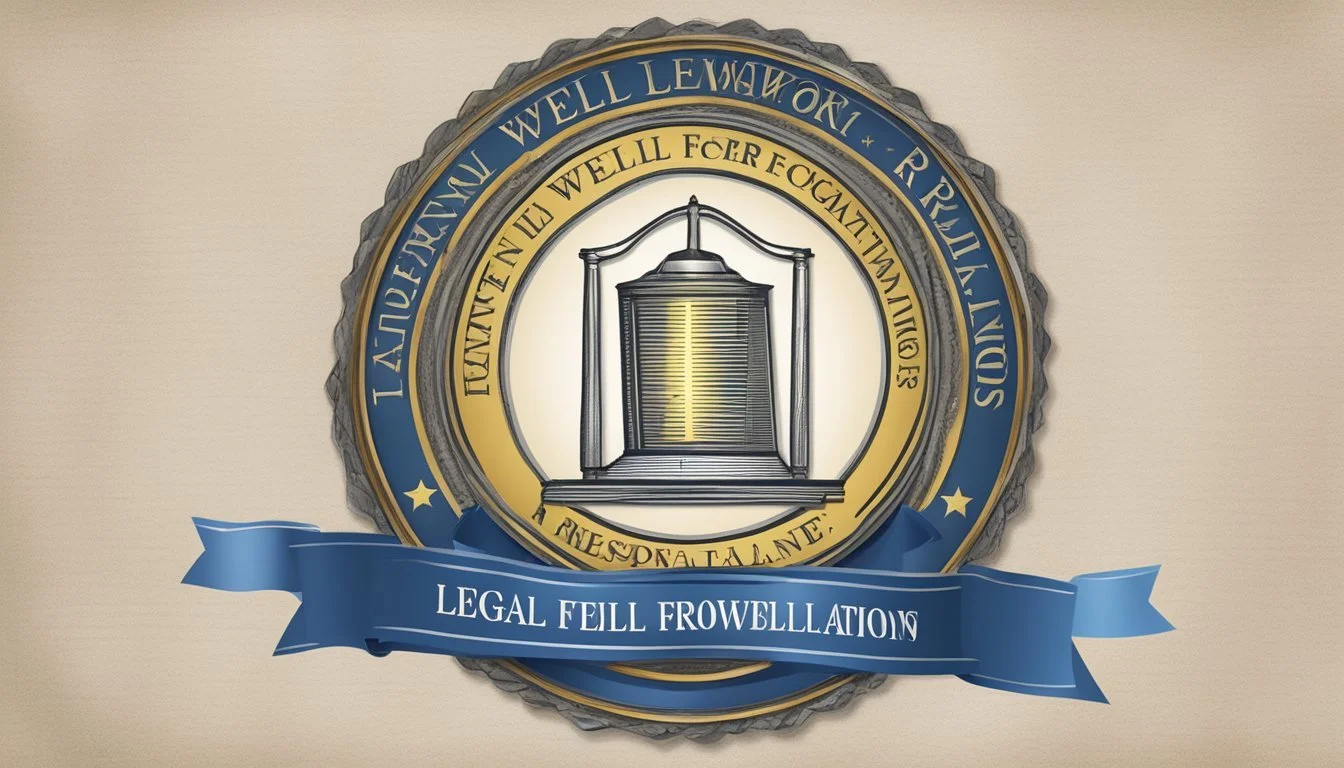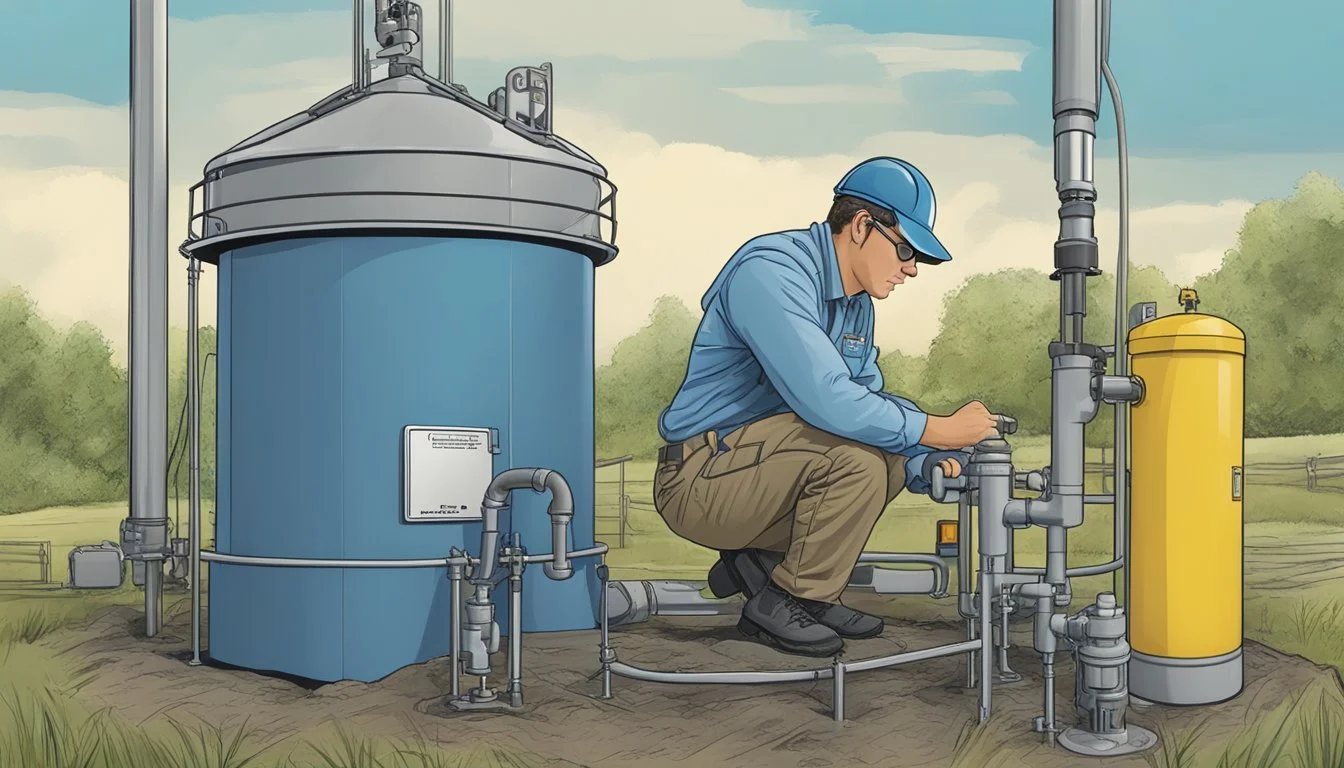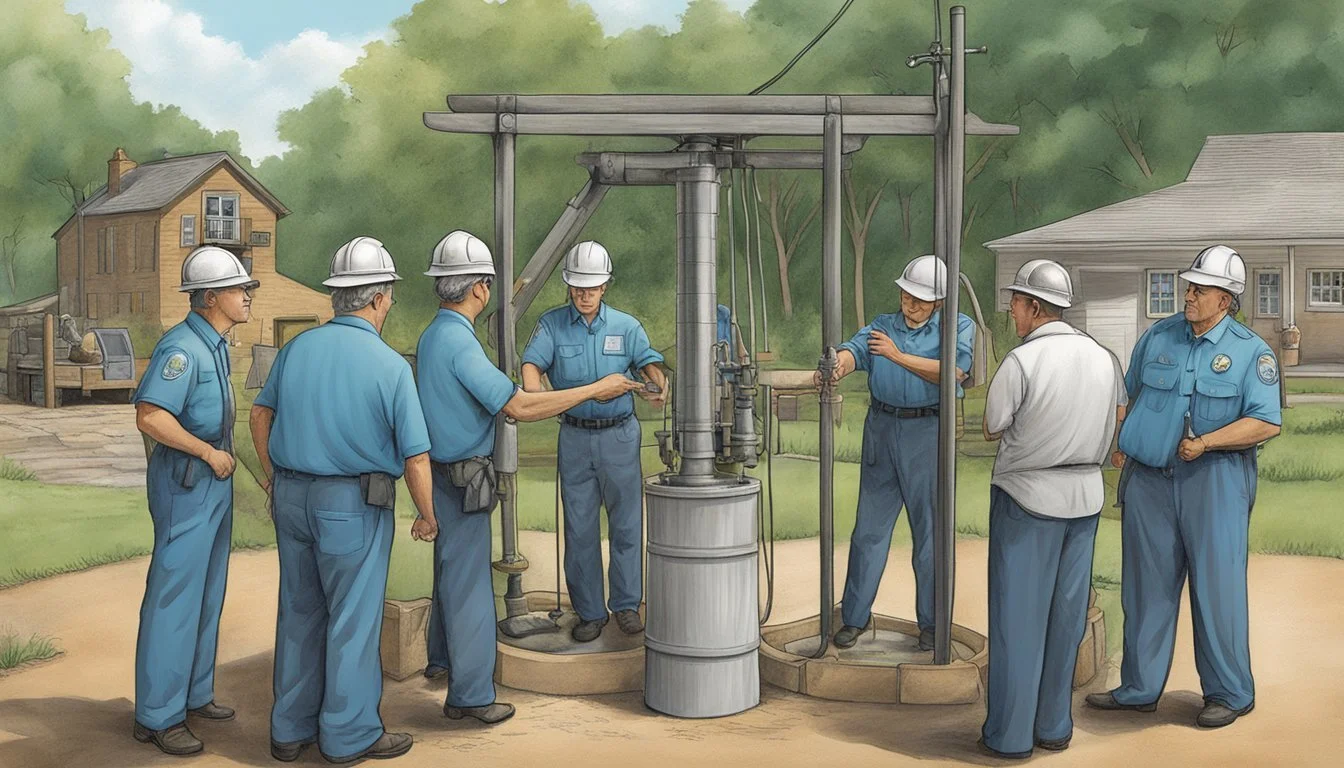Connecticut Water Well Regulations
Understanding Compliance for Property Owners
Connecticut maintains specific regulations to ensure the safety and reliability of private water supply wells within the state. These guidelines cover various aspects of well management, including their construction, maintenance, and water quality testing. Private well owners are tasked with the responsibility of arranging water quality tests, except in instances where the local health department or the Department of Energy and Environmental Protection intervenes as part of an investigation. Understanding these regulations is essential for homeowners relying on private wells for their daily water needs to ensure their water supply is safe and complies with state standards.
The construction and location of private wells are subject to the oversight of local health authorities, as stipulated by the Connecticut General Statutes. Before any work on well construction or repair begins, a registered well contractor must apply for permits from the appropriate state and local agencies. This process ensures that private wells do not pose any risks to public water systems, particularly when located within close proximity. Each well must meet the established siting requirements, reflecting the state's commitment to protecting both the environment and public health.
In addition to siting and construction regulations, Connecticut's laws also define minimum output levels and water quality requirements for private residential wells. These regulations are in place to guarantee a consistent supply of safe, potable water for all residents using private wells. With the state's detailed Well Siting, Construction and Permitting Requirements, homeowners and contractors have a clear framework to follow, which supports the effective management of the state's vital water resources.
Legal Framework for Water Well Regulations
Connecticut upholds a comprehensive legal framework governing water well construction, permitting, and operation to ensure public health and environmental protection.
Connecticut General Statutes
Connecticut's legal provisions regarding the regulation of water supply wells, including private wells, are primarily contained within the Connecticut General Statutes. Section 19a-37 delineates the authority of the Department of Public Health in matters pertaining to water wells, including the protection and location of new water supply wells, and the inspection for compliance with health standards in both residential and nonresidential construction.
Regulations of Connecticut State Agencies
Complementing the statutory requirements, Regulations of Connecticut State Agencies, particularly Chapter 482, outline the well drilling code which encompasses well drilling regulations, description of the organization, and rules of practice for the well drilling industry. These regulations are designed in harmony with the Public Health Code to further define standards for well siting, construction, and permitting requirements to ensure the safety of Connecticut's groundwater resources.
Water Well Construction and Drilling
In Connecticut, water well construction and drilling activities are governed by specific codes and regulations to ensure the safety and adequacy of drinking water resources. These rules include permit acquisition, adherence to the well drilling code, and compliance with drilling procedures and standards.
Well Drilling Code
The Well Drilling Code sets forth the foundation for the regulation of well drilling within the state. It encompasses a variety of specifications, from the location of a well to the materials and methods used during construction. Whether for a private water well or a semipublic well, compliance with this code is mandatory for protecting water quality and public health.
Permit and Certification Requirements
Before initiating drilling activities, operators must secure the appropriate permits and certifications. Prospective well drillers are required to have a valid certificate of registration, ensuring they have met the necessary qualifications and insurance mandates. For each well project, a well permit must be acquired, which is then subject to state inspection upon completion.
Drilling Procedures and Standards
Drilling procedures and standards are carefully detailed to safeguard groundwater during well construction. Specific criteria are outlined for different types of wells, including bedrock and public wells. Proper casing and sealing techniques
Water Quality Monitoring and Compliance
In Connecticut, rigorous water quality monitoring and compliance mechanisms are in place to ensure the safety of both public and private water supplies. These mandates require regular testing for various contaminants, including arsenic, lead, and uranium, to protect public health.
Testing of Water Quality
Regular testing of water quality is critical for maintaining safe drinking water standards. The EPA oversees the implementation of these standards, which must be rigorously met by water service providers. This testing frequently screens for dangerous chemicals, radium, nitrate, and gross alpha emitters among others, to prevent any public health risks. Samples must be correctly collected and handled to preserve their integrity and ensure reliable test results.
Private Well Testing Requirements
For private wells, owners are responsible for ensuring that their water is safe for consumption. Connecticut regulations stipulate that water from private wells must be tested for a range of contaminants such as coliform bacteria, nitrate, and radon. The Connecticut Department of Public Health provides guidelines and schedules to aid private well owners in complying with these testing requirements.
Public and Semipublic Well Standards
Public and semipublic wells are held to stringent standards to protect groundwater, the primary source of drinking water. Public health is a top priority, and the testing
Protecting Connecticut's Water Resources
In Connecticut, the safeguarding of water resources is prioritized to maintain both public health and ecological integrity. This focus encompasses the protection of groundwater and aquifers from pollution and the management of industry and agriculture impacts on water quality.
Aquifer and Pollution Control
Connecticut has instituted an Aquifer Protection Area Program to shield its major public water supply wells in sand and gravel aquifers from contamination. This includes implementing strategies to prevent pollution from substances like pesticides, herbicides, and organic chemicals. Extensive guidelines and an interactive map of protected areas reflect Connecticut's commitment to maintaining the purity of these crucial water sources. Access to program guidance and regulations can be obtained through resources such as the Connecticut Government's water regulations overview.
Industry and Agriculture Impact
The state recognizes the potential impact of industry and agriculture on groundwater quality. As such, activities that may affect underground water resources are under a legal framework, ensuring operations do not compromise water integrity. Essential in this context are the statewide rules that regulate the application of pesticides and herbicides within areas of groundwater recharge to prevent aquifer contamination. For a detailed outline of well drilling and environmental protection statutes, the [Connecticut General Assembly](https://www.cga.ct.gov/current/pub
Regulatory Bodies and Professional Standards
In Connecticut, the regulatory framework for water well standards involves multiple entities, each with a specific role to ensure public safety and maintain quality standards.
Department of Public Health Responsibilities
The Connecticut Department of Public Health bears the primary responsibility for safeguarding the public's health related to water resources. Under the direction of the Commissioner of Public Health, it enforces regulations set forth in the Public Health Code. This agency issues licenses to well drilling contractors and professionals, ensuring they meet rigorous industry standards.
Local Health Departments and Health Districts
Local health departments and health districts complement the state-level oversight by conducting inspections and enforcing standards locally. They ensure that water wells do not compromise the water quality and that they meet specific parameters, such as acceptable pH and iron levels. The involvement of these local entities is crucial for granting Certificates of Occupancy for new constructions, signifying that the water system complies with the relevant health codes.
Water Treatment and Cleanup Certification
For water treatment and the cleanup of contaminated sites, professionals must obtain proper certification. This process guarantees that individuals handling water quality issues, including well-related concerns like remediation, are qualified and adhere to the approved methods of restoring water quality to safe levels. Certification helps build a framework where all water treatment activities meet the standardized protocols for health and environmental safety.
Ensuring Public Safety and Compliance
In Connecticut, strict adherence to water well regulations is crucial for protecting public health and ensuring the safety of both the environment and real estate transactions. These regulations are administered to prevent water contamination and promote reliable water treatment solutions.
Public Health Code Enforcement
The State of Connecticut's Public Health Code mandates the construction and maintenance standards for private wells. Local directors of health have the authority to enforce these regulations, ensuring that wells are situated and installed in compliance with safety guidelines. Moreover, environmental laboratories play a vital role in analyzing water samples for common contaminants, such as nitrate-nitrogen, to detect potential health risks.
Penalties for Non-Compliance
Non-compliance with the established regulations can result in significant repercussions. Penalties may involve fines or an order to undertake corrective actions, such as upgrading the water treatment system or well. The intention behind these sanctions is to prompt immediate remediation and deter future violations, safeguarding the public's well-being.
Public and Real Estate Disclosures
During real estate transactions, sellers must disclose information about private wells on the property. Such disclosures include recent test results for water quality, sourced from an accredited environmental laboratory. This information becomes part of the public record, providing transparency and promoting informed decision-making for potential buyers about the condition of the real estate and associated public health concerns.
Additional Considerations and Best Practices
In Connecticut, the regulation of water wells is comprehensive, encompassing various aspects to ensure public safety and resource management. Here, we focus on key areas including the certification of water testing laboratories, specifics of bulk water hauling regulations, and well permit exceptions.
Water Testing Laboratories
Certified Laboratories: For accurate assessment of water quality, it is essential that testing is performed by state-certified laboratories. Connecticut's Department of Public Health maintains a list of certified laboratories that meet stringent criteria to conduct these examinations. Water tests should include screening for common contaminants such as heavy metals, volatile organic compounds, and bacteria to safeguard health.
Bulk Water Hauling Regulations
Regulatory Compliance: Bulk water hauling is regulated to prevent contamination and ensure water quality during transport. Haulers must comply with regulations that mandate the use of clean and sanitized containers and the protection of water from exposure to harmful substances. Adherence to these rules is crucial for maintaining an uncontaminated supply, particularly when used to fill residential wells or in emergency situations.
Well Permit Exceptions
Farming and Other Exemptions: Specific exceptions to well permitting exist, such as certain activities related to farming. As detailed in the Connecticut General Assembly's statutes, these exceptions are designed to support agricultural practices while still managing water resources effectively. However, even exempted wells must not compromise the safety and cleanliness of the state's water resources.
Consumer Guidance and Support
As a Connecticut resident, navigating the regulations and maintaining the quality of your well water is made simpler with direct access to state resources and an understanding of well water maintenance requirements.
Accessing State and Public Health Resources
Connecticut's Department of Public Health (DPH) provides substantial guidance for homeowners on private well ownership, including the legal framework for well placement and construction. The DPH, through local health districts, authorizes well installations and offers resources on public health relating to water quality.
Public water supply systems are subject to strict regulations to maintain water safety. Residential well owners who live within 200 feet of a community water supply system can access information and support on well usage from the State's Public Health Code.
Understanding Well Water Maintenance
Maintaining a residential well requires adherence to public health standards to ensure the water is safe for consumption. Homeowners should regularly inspect their own wells and be aware of the maintenance protocols. The Public Health Code provides guidelines for water quality testing and the proper distancing of wells from potential contamination sources. The Connecticut Well Drilling and Geothermal System regulations, updated in July 2022, outline the standards for well drilling and the responsibilities of well system owners.
For issues related to their residential wells, consumers can consult the Connecticut Water Well Association for additional support. This association works closely with the state, environmental experts, and public water systems to enhance homeowner knowledge and support on well maintenance and water quality.
Frequently Asked Questions
In Connecticut, compliance with water well regulations ensures the safety and sustainability of groundwater resources. These regulations cover a broad range of factors from construction to testing requirements.
What are the legal requirements for drilling a new water well in Connecticut?
In Connecticut, a registered well contractor must obtain permits from both The State Plumbing and Piping Work Examining Board and the local Director of Health or their agent before drilling, repairing, or abandoning a well. Detailed construction and permitting requirements must be followed to safeguard groundwater.
How can I access Connecticut's water well records?
Water well records in Connecticut can be accessed through the Department of Public Health. These records provide information on well location, yield, and construction details, which are vital for property transfers, environmental assessments, and public health considerations.
What are the minimum distance requirements for a well from the property line in Connecticut?
In Connecticut, there are specific regulations regarding the siting of wells, including minimum distance requirements from property lines and potential contamination sources, to prevent water supply complications and safeguard public health.
What are the current guidelines regarding PFAS testing for private wells in Connecticut?
Recent concerns about PFAS contamination have prompted guidelines for testing private wells. Connecticut's Department of Public Health offers recommendations and resources for homeowners to test for these compounds and ensure the safety of their drinking water.
What is the average cost to dig and install a new well in Connecticut?
The cost to dig and install a new well in Connecticut varies depending on factors such as depth, well type, and location. Homeowners can expect a range of costs, with specifics dependent on contractor rates and geological conditions.
What is the typical depth range for water wells in Connecticut?
The typical depth for water wells in Connecticut can vary greatly, with many wells reaching depths that allow them to access the state's diverse aquifers effectively. Depth may also be influenced by the geographic region and underlying geology.










